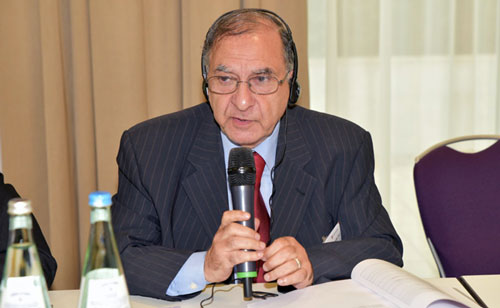Dr. Ghulam Nabi Fai
While the hullabaloo over Parliamentary elections in Indian occupied Kashmir has been on the verge of being a circus, with all the elephants of election sloganeering on parade, like, Prime Minister Modi’s tweet, “The abrogation of Article 370 has enabled the aspirations of the people (of Kashmir) to find full expression.” And Amit Shah’s tweet, “The Modi government’s endeavours to ensure peace and development in Kashmir have strengthened people’s trust in democracy.” But the analytical observation on the ground shows that the higher voter turnout was the reflection of the rejection of Modi’s colonial and antidemocratic ways in Kashmir.
Such sloganeering was also a distraction from the basic and fundamental right, pledged by both India and Pakistan and upheld by the world community – the right of self-determination given to the people of State of Jammu & Kashmir to decide the future status of its territory.
There is no doubt that the authority of any government can only derive from the will of the people as expressed in truly free and fair elections held in regular intervals on the basis of universal, equal and secret suffrage.
Elections must meet legitimate standards based on internationally accepted and prescribed procedures for voter registration, election campaign and ballot secrecy. It is a fact the election or referendum in Kashmir has to be conducted, monitored and supervised by an impartial and neutral agency, like the United Nations.
Unfortunately, the elections in Indian Occupied Kashmir do not meet this threshold and are therefore, illegitimate as a vehicle to move forward any talks even as a first step towards the resolution of Kashmir dispute.
The world powers know that the Government of India’s election plans have nothing to do with building a majority consensus in Kashmir. They are designed to legitimize its illegitimate rule in the eyes of the international community.
It is worth mentioning here that the United Nations Security Council has denounced the “subterfuge” of elections in a 1957 resolution # 122.
It reminded the concerned governments and authorities “of the principle embodied in its resolution that the final disposition of the State of Jammu and Kashmir will be made in accordance with the will of the people expressed through the democratic method of a free and impartial plebiscite conducted under the auspices of the United Nations.”
The resolution further elaborated that “the convening of a Constituent Assembly…and any action that Assembly may have taken or might attempt to take to determine the future shape and affiliation [of Kashmir]” would be no surrogate for Kashmiri self-determination.










